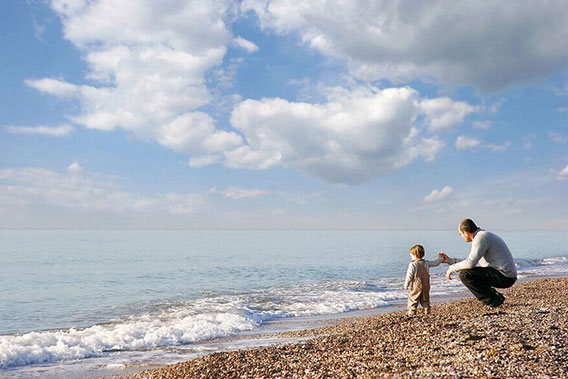Benjamin Franklin penned the words; “Tell me and I forget, teach me and I may remember, involve me and I learn.” A key part of learning is to be actively engaged. That can take many forms, as learning is not solely gaining new knowledge.
Typically, we think of learning from the vantage point of a classroom with a teacher at the board providing the lesson. But how much do we really learn if we are simply told what to remember? Real learning takes place when we are engaged. It is the difference between listening to what is being taught and actively discovering what we can learn. What we are truly interested in drives our desire to learn.
Who is the teacher?
Our children enter the world with no knowledge. Their minds are tabula rasa – a blank slate. They come into this complicated world lacking definitions for the words that they hear. From their earliest days, children absorb information, attempting to understand their world and role in it. This is a lifelong process, for them, for us, for everyone.
But the world in which youth live today is radically different than the one in which we grew up. I am not trying to be a prophet of doom nor am I trying to go back to the good ol days. It is simply a reality that things are different. We can all see that around us. But do we really understand the significance of this in the lives of youth?
Children are bombarded with change. The world around them is in constant movement, forcing them to adapt to a rapidly evolving culture and environment. As parents, are we teaching, coaching, and listening to our youth who long to be led, taught, and accepted?
What we are learning by listening
One of the things we have learned by listening to the youth of this and previous generations is that parents often underestimate the culture’s influence while overestimating their own parental influence. If we take what they are saying seriously, this means that parents have an unrealistic view of the world their children live in every day.
We might label that reality as peer pressure, but when the majority of youth are involved in some kind of high risk behavior (porn, sex, drugs), is it really peer pressure anymore? Is it just the sign of the times or a phase youth go through? Is it really a phase when they all see that as normal?
Certainly the answer is no. Honest teens will describe their ever changing normal as confusing, scary, and even unsettling.
Who will be the influencer?
Joseph Joubert wrote in the 1700’s that; “Children have more need of models than of critics. Who are the models that will guide our children through these changing times? Who will come alongside our teens to offer comfort, encouragement, and advice? Even more, who will come alongside parents to do the same?
Adults and youth alike are influenced by people who:
- have qualities that we would like to have.
- inspire us to be successful.
- have wisdom in the areas we need help.
- are readily accessible and available.
- appear to be on our side.
So if this is what we are looking for, then we as parents need to recognize that we must be available, flexible, honest, loving, encouraging, and ready to listen.
As a ministry that listens to youth every day, we are here to partner with you. We take lessons from stories like Jonathan. We listen to teens who tell us what “normal now looks like. We hear parents who call us looking for help. We are told by communities of their struggles helping parents and youth understand their identity, the culture around them, challenges with technology, high-risk behaviors, and an increasing number of suicides across genders and age groups.
We are here as your partner, sharing what we learn and discover every day, so that you might teach and guide those whom you love the most.
Stay Updated
Sign up for our monthly newsletter and weekly devotional











